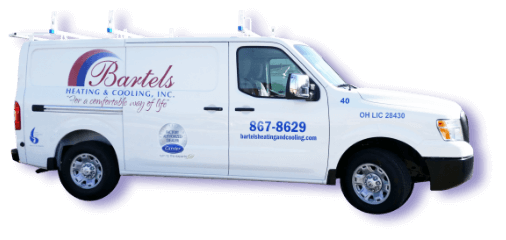Fall 2014
Five Signs It’s Time to Replace Your Furnace
For many people, the sound of a furnace kicking on reminds them of the winter and a warm home. But while furnaces are regarded as one of the most efficient and consistent heating systems on the market, they will eventually break down and need to be replaced. Knowing when that time has come for your furnace can be difficult though. Take a look below to see some of the signs that indicate a need to replace your furnace rather than just repairing it.
- Rattling. If your furnace makes a rattling noise, it could just be a loose part. But it could also be a cracked heat exchanger allowing carbon monoxide to leak into your home. (Your furnace’s heat exchanger is a long tube of metal that gets heated by the burner and warms the air coming into your home.) The exchanger is also responsible for removing all of the dangerous combustion gases from your home. If it gets cracked, it almost always needs to be replaced instead of repaired.
- Rust. If your furnace is coupled with an air conditioner system, condensation from the AC can actually drip down onto the furnace. This usually happens when the condensate drain system gets clogged and overflows. The water often drips onto the heat exchanger and rusts it until a hole develops in the heat exchanger, necessitating replacement.
- Inefficiency. As your furnace ages, it will start to deteriorate. Even if you get it serviced twice a year, time marches on and your furnace won’t be able to heat your home as well. If you start to notice an increase in your utility bill, you should probably call for repair or replacement. Your heating technician can tell you whether he or she can repair the system and improve its efficiency or if it’s time to start thinking about replacing it.
- Frequent repair. Your furnace shouldn’t require that much professional attention except for some maintenance visits each year. If you have to call for repairs on a regular basis, you may be better off spending that money on a new system.
- Age. Age can be a very important determining factor in whether or not you decide to replace your furnace. You don’t always have to wait until your furnace is completely dead in order to consider replacing it. As your furnace ages, it will likely develop several of the issues listed above. You could save yourself a lot of headaches by replacing it early.
Whenever you detect any problems with your furnace, make sure that a professional performs any replacements and installations. Also, be sure to call early when you notice any problems so that you can keep them from developing into larger, more costly issues.
Important Safety Tips for a Gas Furnace
Natural gas furnaces in homes have an exaggerated reputation as dangerous appliances. Perhaps many decades ago there was some cause for worry; but the manufacturers of modern gas furnaces design them with safety uppermost in mind. With the proper care and a bit of caution, you shouldn’t need to worry about hazard from leaks or fire with the gas furnace that keeps your home warm.
Here are a few tips to help you maintain a safe furnace. If you ever have any doubts about your furnace’s operation or concerns that it become unsafe, call for professional heating technicians. You should never attempt repairs on a gas furnace on your own—let the people with years of training handle the work!
Safety tips to keep in mind
- Know where the gas shut–off valve is located: In case of emergencies or any situation where you feel the furnace could be turning hazardous, you must know where you can shut off the gas to the furnace. Close off the flow of gas before you call for repair technicians.
- Listen for clicking sounds from the cabinet: Some clicking noises from a furnace are common when it first comes to life. However, if you hear a clicking sound right before the blower fan comes on, it could indicate that there are cracks along the heat exchanger. This is a potentially dangerous scenario, since the heat exchanger will start to leak carbon monoxide exhaust. Call for repair technicians to investigate and see if the heat exchanger should be replaced.
- Make sure children know not the play around the furnace: The surface of a furnace will become hot when it is working. If you have children in your home, make certain they are aware of this and reduce the chance of one of them becoming injured.
- Replace a rusting furnace: Under most conditions, a furnace will not develop corrosion. However, when a furnace ages to the point where it is no longer venting correctly, the reaction of metal with the combustion gas will trigger rust. When you see signs of this, the furnace should be replaced with a new unit for the sake of safety.
- Schedule annual maintenance: This is the most important step to take to keep a furnace in safe condition. Every year, usually during the fall, arrange to have a HVAC technician from a reliable company inspect the furnace and make tune–ups and adjustments. The maintenance technician will detect any places where there are malfunctions or the potential for malfunctions and help you schedule any repair necessary to see that the system works safely for the coming cold season. If your furnace becomes too aged to work adequately, you should consider replacing it before it can become a potential risk.
If you follow these guidelines and listen to the advice from your professional heating technician, there is no reason you shouldn’t enjoy a long and worry–free service life from your furnace.

